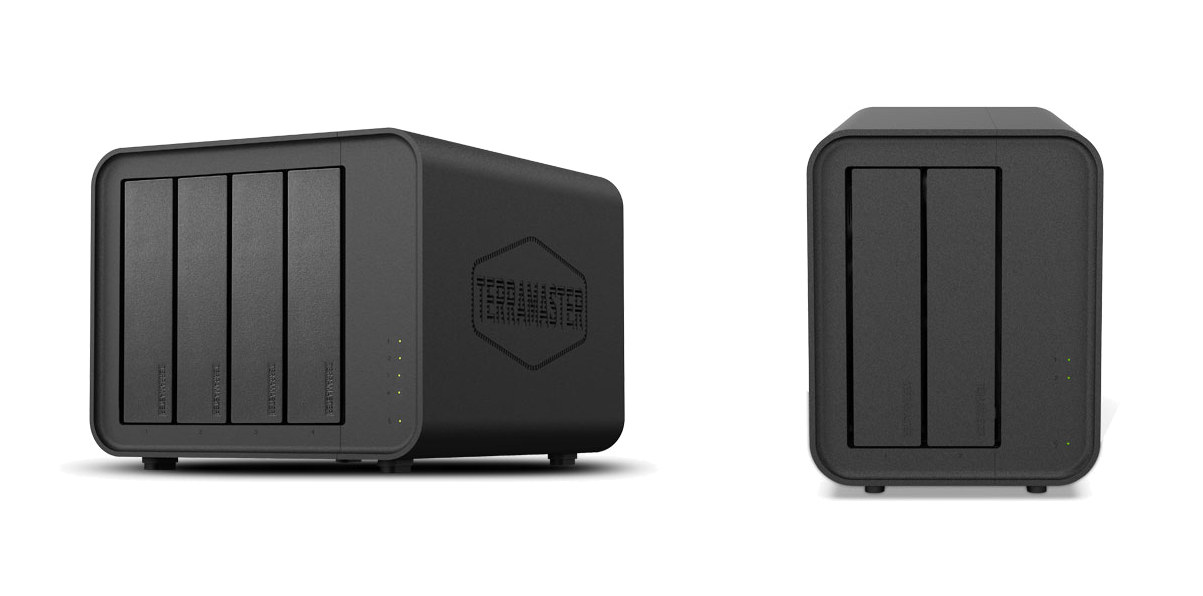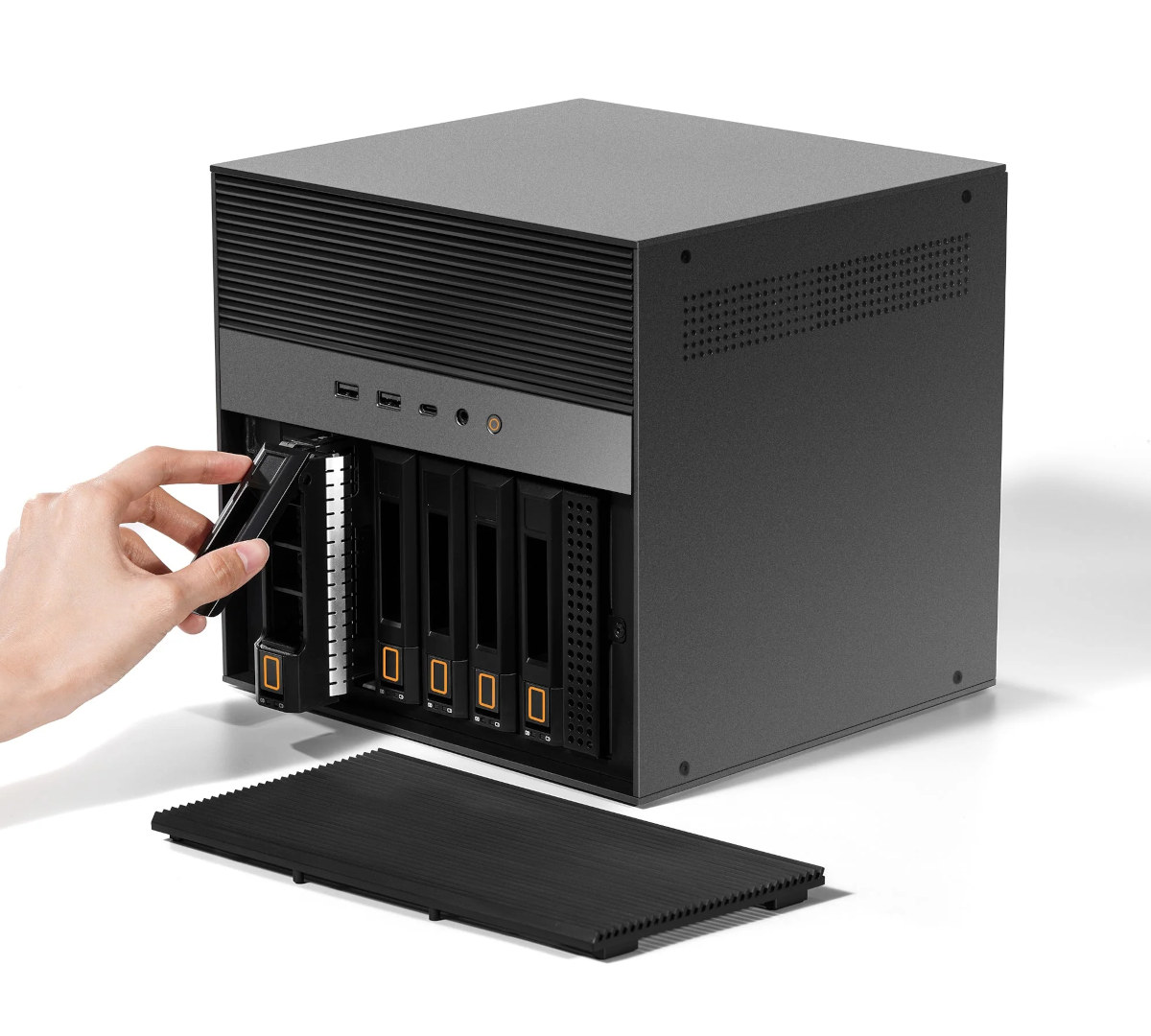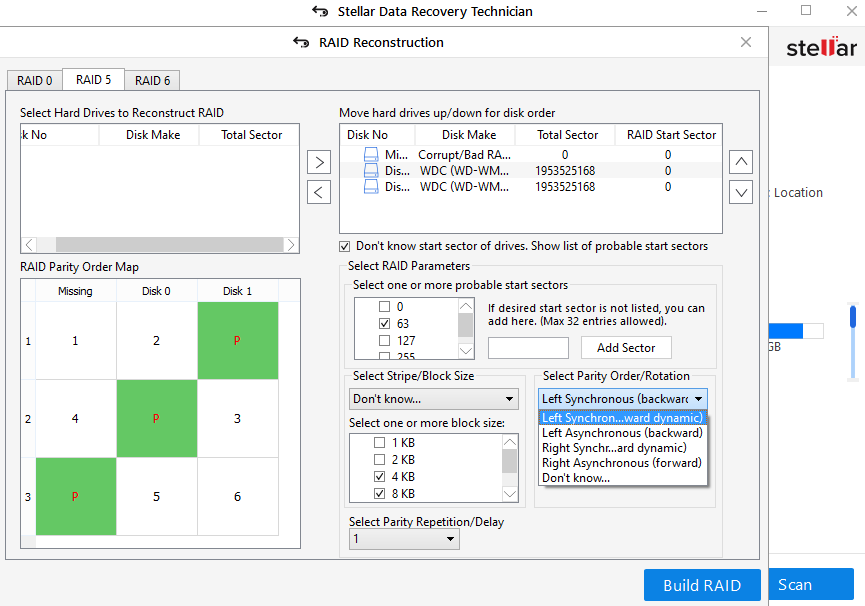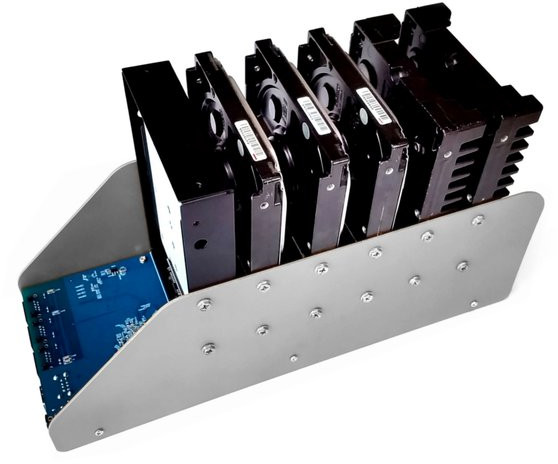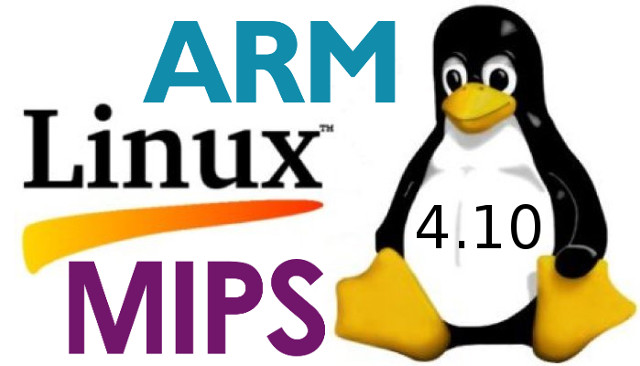We have already covered NAS systems based on the Alder Lake-N processor such as the 2-bay AAOSTAR R1 and the 6-bay ZimaCube both powered by an Intel Processor N95. But both are made by smaller companies, and TerraMaster has now introduced the 2-bay F2-424 and 4-bay F4-424 NAS systems equipped with an Intel Processor N95 quad-core processor. The two models ship with 8GB DDR5 memory by default, upgradable to 32GB, and feature two M.2 2280 sockets for NVMe SSDs, dual 2.5GbE networking, and two 10 Gbps-capable USB 3.2 host ports, one being a USB Type-A port, and the other a USB Type-C port. The multimedia capabilities of the Processor N95 CPU can be used through an HDMI 2.1 video output. TerraMaster F2-424 and F4-424 specifications: SoC – Inte Processor N95 quad-core Alder Lake-N processor @ up to 3.4 GHz with 6MB cache, 16 EU Intel UHD graphics @ up to […]
ZimaCube 6+1-bay NAS offers 2.5GbE, PCIe slots, with either Intel Processor N100 or Core i5-1235U SoC (Crowdfunding)
IceWhale Technology, the company behind the line of ZimaBoard x86 SBCs, has now introduced the ZimaCube (Pro) 6+1-bay NAS equipped with either an Intel Processor N100 Alder Lake-N processor or a more powerful Intel Core i5-1235U Alder Lake-P CPU with additional 2.5GbE ports, PCIe expansion slots, and M.2 sockets. Both models support up to six 2.5-inch or 3.5-inch SATA drives, support for M.2 NVMe SSDs, offer 2.5GbE networking, six USB ports, and one or more PCIe expansion with either PCIe Gen3 (Processor N100) or PCIe Gen4 (Core i5-1235U) enabling the addition of a graphics card, high-speed network cards, and more. ZimaCube (Pro) specifications: SoC ZimaCube – Intel Processor N100 quad-core Alder Lake-N processor @ up to 3.4 GHz (Turbo) with 6MB cache, 24EU Intel HD graphics @ up to 750 MHz; TDP: 6W ZimaCube Pro – Intel Core i5-1235U 10-core/12-thread Alder Lake U-Series processor with 2x Performance cores @ 1.3/4.4GHz, […]
Stellar Data Recovery Technician – RAID data recovery software for Windows (Sponsored)
Stellar Data Recovery Technician is a RAID data recovery software that works on Windows 7, 8, 10, or 11 and can recover RAID data from RAID 0, 5, and 6 drives including deleted documents, photos, emails & more from RAID drives. The software can also recover data from lost or formatted RAID logical volumes, create bootable USB media to recover data from a crashed PC, and supports RAID arrays with NTFS, FAT, and exFAT file systems. It can be used whether you’ve accidentally deleted or lost RAID data, incorrectly rebuild a RAID array, or are starting to get RAID read/write errors while accessing data such as ‘Can’t read data from RAID disk’ or ‘Unrecoverable Read Error’ which can result in data loss. Stellar Data Recovery Technician key features: Recovers data from an inaccessible RAID volume – The program recovers data from logically corrupt and inaccessible RAID 0, RAID 5, and […]
GNUBee Personal Cloud 2 is a DIY NAS Supporting up to Six 3.5″ SATA Drives (Crowdfunding)
GNUBee Personal Cloud 1 is a DIY NAS powered by Mediatek MT7621A MIPS processor that supports up to 2.5″ SATA drives, and runs free and open source software. It was first introduced in March of this year through a CrowdSupply campaign. The developers are now back with GNUBee Personal Cloud 2 (GB-PC2) with pretty much the same features, but instead of being designed for 2.5″ drives, it supports up to six 3.5″ drive that should offer either more capacity, or a lower total price for an equivalent capacity. GB-PC2 NAS specifications: Processor – MediaTek MT7621A dual core, quad thread MIPS processor @ 880 MHz, overclockable to 1.2 GHz System Memory – 512 MB DDR3 (max supported by MT7621) Storage – SD card slot tested up to 64 GB, 6x 3.5” SATA HDD or SSD (recommended RAID 0 or 1 under LVM, MD, or Linux MD RAID 10) Connectivity – 3x […]
Linux 4.10 Release – Main Changes, ARM & MIPS Architectures
Linus Torvalds has just released Linux 4.10: So there it is, the final 4.10 release. It’s been quiet since rc8, but we did end up fixing several small issues, so the extra week was all good. On the whole, 4.10 didn’t end up as small as it initially looked. After the huge release that was 4.9, I expected things to be pretty quiet, but it ended up very much a fairly average release by modern kernel standards. So we have about 13,000 commits (not counting merges – that would be another 1200+ commits if you count those). The work is all over, obviously – the shortlog below is just the changes in the last week, since rc8. Go out and verify that it’s all good, and I’ll obviously start pulling stuff for 4.11 on Monday. Linus Linux 4.9 added Greybus staging support, improved security thanks to virtually mapped kernel stacks, […]


